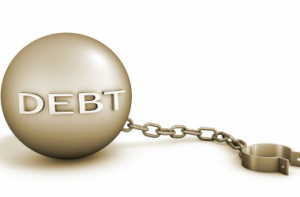 People remember where they were when they heard about big historical events, like the planes flying into the World Trade Center buildings. Finance geeks remember where they were in September 2008 when they heard that the Prime Reserve Fund had “broken the buck.” A money market fund’s share price had just dropped below $1 for the first time, and this was a huge deal. Money market funds were supposed to be safe–I almost said “safe as houses,” but given the subsequent real estate recession, maybe not. Anyway, it wasn’t hard to envision this news triggering a Depression-era run on the funds where individuals and institutions stored trillions of dollars of cash. The funds wouldn’t be able to meet all the demands for withdrawals and the banking system would grind to a halt. From there, the collapse of the whole financial system would no longer be a fantasy of end-of-the-world preppers. Of all the bad news that fall–and there was a ton–that’s the story that really made it clear how close we were to the brink.
People remember where they were when they heard about big historical events, like the planes flying into the World Trade Center buildings. Finance geeks remember where they were in September 2008 when they heard that the Prime Reserve Fund had “broken the buck.” A money market fund’s share price had just dropped below $1 for the first time, and this was a huge deal. Money market funds were supposed to be safe–I almost said “safe as houses,” but given the subsequent real estate recession, maybe not. Anyway, it wasn’t hard to envision this news triggering a Depression-era run on the funds where individuals and institutions stored trillions of dollars of cash. The funds wouldn’t be able to meet all the demands for withdrawals and the banking system would grind to a halt. From there, the collapse of the whole financial system would no longer be a fantasy of end-of-the-world preppers. Of all the bad news that fall–and there was a ton–that’s the story that really made it clear how close we were to the brink.
We avoided the worst, but our close call should have put every financial regulator on his or her toes. Unfortunately, secret recordings made by a now-fired Fed attorney make it clear that watchdogs are instead cuddled in the arms of the financial institutions they’re supposed to regulate. This is a gigantic story, one that financial author Michael Lewis calls “The Ray Rice video for the financial sector.”
Listen to the This American Life podcast here, and read ProPublica’s story here. This is news you really need to know.








